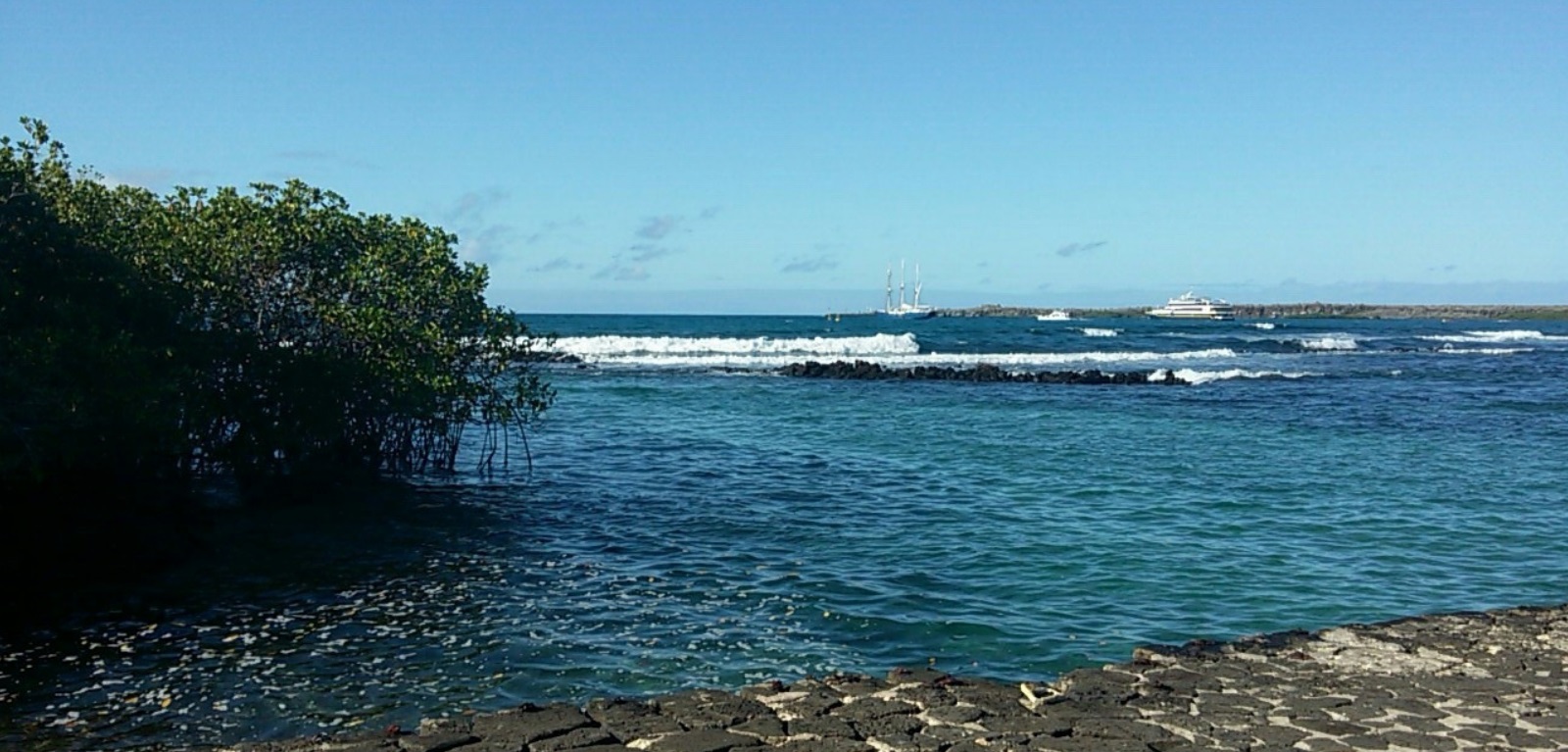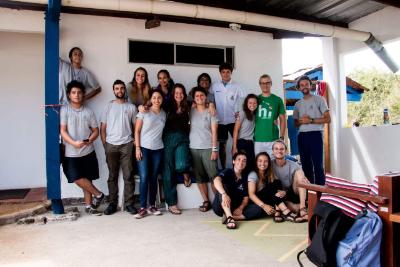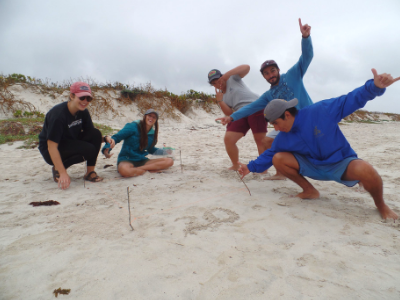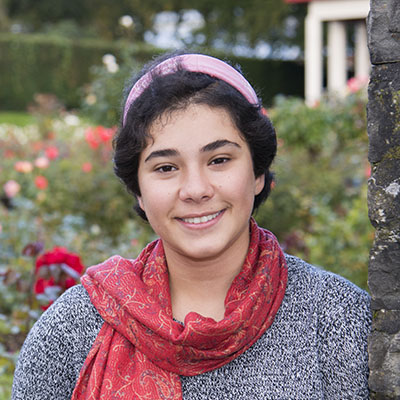Studying Abroad: Preserving the Ecosystem in the Galapagos Islands
Farah Hamdan is a student in the School of Biological Sciences at Queen’s. For her placement, she’s spending five months amongst the beauty and conservation work of the Galapagos Islands. Today she’s sharing her experience so far on the blog.

When I first told my friends I’d be going away to the Galapagos Islands for 5 months to do my placement, they all said the same thing: “That’s not a real place”! Even those few who did know a bit of world geography couldn’t imagine me flying out into the middle of the Pacific to get work experience.
Well, fast forward to sitting in the Charles Darwin Foundation marine lab on Santa Cruz Island and I can happily confirm that the islands are in fact real, and man are they stunning! The lab window looks out onto the ocean and the rest of the town, which is a beautiful array of small, brightly coloured houses and shops.

The Locals are Wild!
Before the trip, I expected to see a lot more tourists than locals, but I was surprised with the preservation of local culture and identity. And by that, I mean the wildlife, which is the basis of the entire culture of this place. Marine iguanas, sea lions, and reef sharks are EVERYWHERE.
The walk to the lab is known as the “Iguana Walk”, because of the 67 (last time I counted) marine iguanas that lay in the middle of the path sunbathing while you do your best not to accidentally step on one’s tail. If you walk through the town during the day and pass by the fish market, you’ll usually see 2 or 3 sea lions lounging around, waiting for some scraps from the vendors.
As for the sharks, well they’re honestly in every corner of the ocean around here. But their favourite spot around town is the docks. On a good day, you could probably see about 12 black-tip reef sharks in one spot!
The Most Beautiful Place in the World
My placement on The Galapagos Islands has been, without a doubt, an eye-opening experience. The Galapagos and its waters remain a very pristine ecosystem, the likes of which are very hard to find in our world today. I have a new vision of a place where humanity and the natural world can once again coexist. More than that, they can nurture one another and promote a better existence.
I came here with no expectations at all, and I have been blown away. The islands have given me so much already, and I hope that in some way, I will be able to give something back.

Fieldwork Experience
My experience on the Lindblad- National Geographic Endeavour II has been the best week of my stay in the Galapagos by far. As part of our comprehensive study of marine plastic debris and their potential use as a vector for invasive species transport, my research team was given 2 spots onboard the ship. The expedition took us to the west of the archipelago, to conduct research on the more remote islands that we wouldn’t usually have access to.
I was lucky enough to be chosen for this trip, so I packed my bags and headed out with no particular expectations for the next 8 days.
My first impression, and what has stuck with me the most, is how environmentally-conscious all the guests and staff are. Though none of them are biologists by profession, they all seemed to be aware of environmental concerns and were very keen to engage us in conversation about all the conservation efforts being led across the archipelago and the rest of the world. Even the staff, who we were able to spend a significant amount of time chatting to, lead lives that are truly dedicated to preserving the islands that they called home; it was very inspiring.
Each day we set out a plan for when and where to conduct our fieldwork and headed out with the rest of the guests. While they took their guided tours of the island or shore that we were visiting that day, we surveyed the shoreline for plastic debris.
One of the mornings found us snorkelling along a remote shoreline in order to survey and map an invasive algae, and the guests (who were on dry land) found us so amusing that they had to take photos of us like they do with the wildlife.
Enjoying Everything the Galapagos Has to Offer
By managing our time well while onboard, we also had time to snorkel and join some of the tours ourselves. We got the chance to swim with Galapagos penguins, get chased by a flightless cormorant in the water, and watch a sea lion hunt and eat a tuna fish. However, the highlight of the whole trip for me was when we were lucky enough to see an orca breaching a stone’s throw away from our zodiac boat.
I was awestruck to see such a majestic creature going about its day, wild and free. It put everything into perspective, and once again I was reminded of why I do what I do. There is so much to learn from these stunning animals, both on a professional and a personal level.
I came back from this fieldwork trip with a very new outlook on the career ahead of me. Although the work of an ecologist isn’t always going to be about amazing expeditions and breaching orcas, it can certainly help maintain them and make sure they remain possible. And that is perhaps the most rewarding part of all of it.
Find out more about studying Environmental Mangement in the School of Biological Sciences or explore the wide range of study abroad options at Queen’s.

Farah Hamdan
Media
Contact Biological Sciences dedicated Careers Advisor Mark Gallagher
